
50kg Refillable Empty LPG Cylinder Cooking Gas Cylinder High Quality
Liquefied petroleum gas is a by-product of petroleum extraction and processing. A colorless gas and liquid mixture mainly composed of propane, propylene, butane, and butene, which is originally odorless. But when we use liquefied petroleum gas in our daily life, we often smell a pungent smell, which is because of the addition of "odor" for the safety of use. Odorization of liquefied petroleum gas helps people detect and take measures in time when liquefied petroleum gas leaks.
- YA
- Shandong Province, China
- About 20 days after receive orders
- 300000pcs per month
- Information
- Video
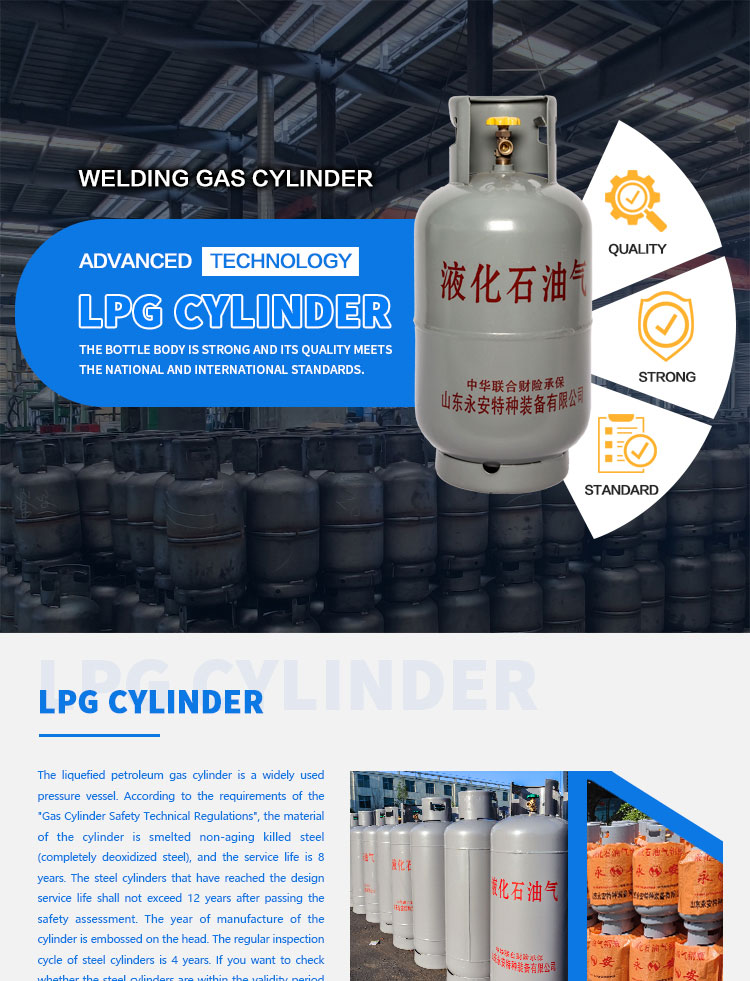
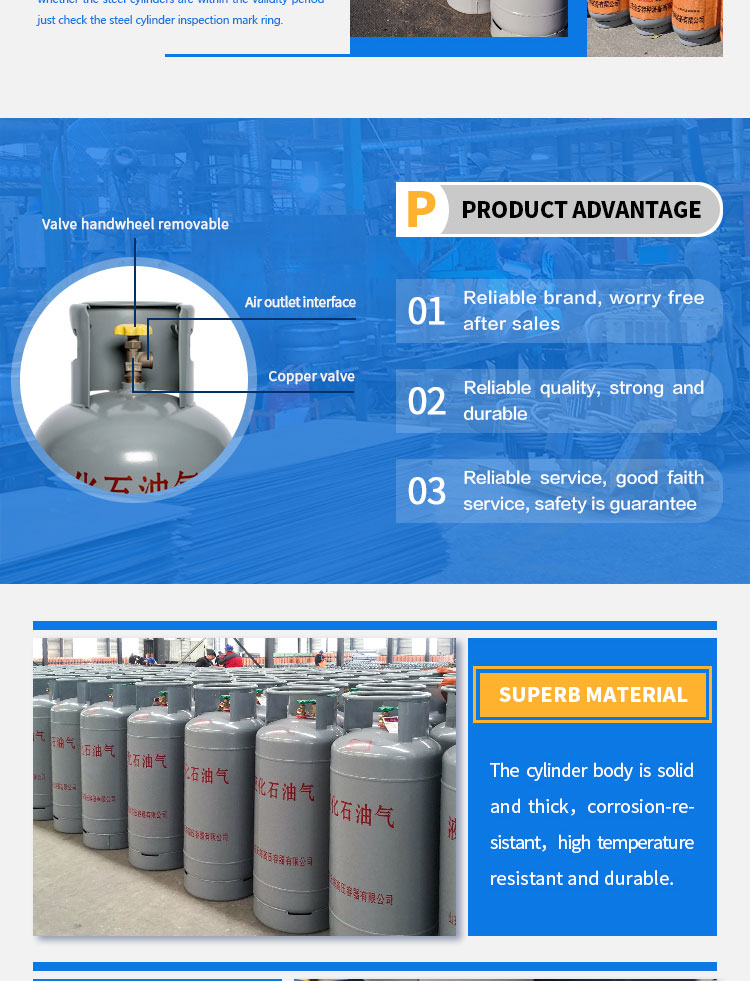
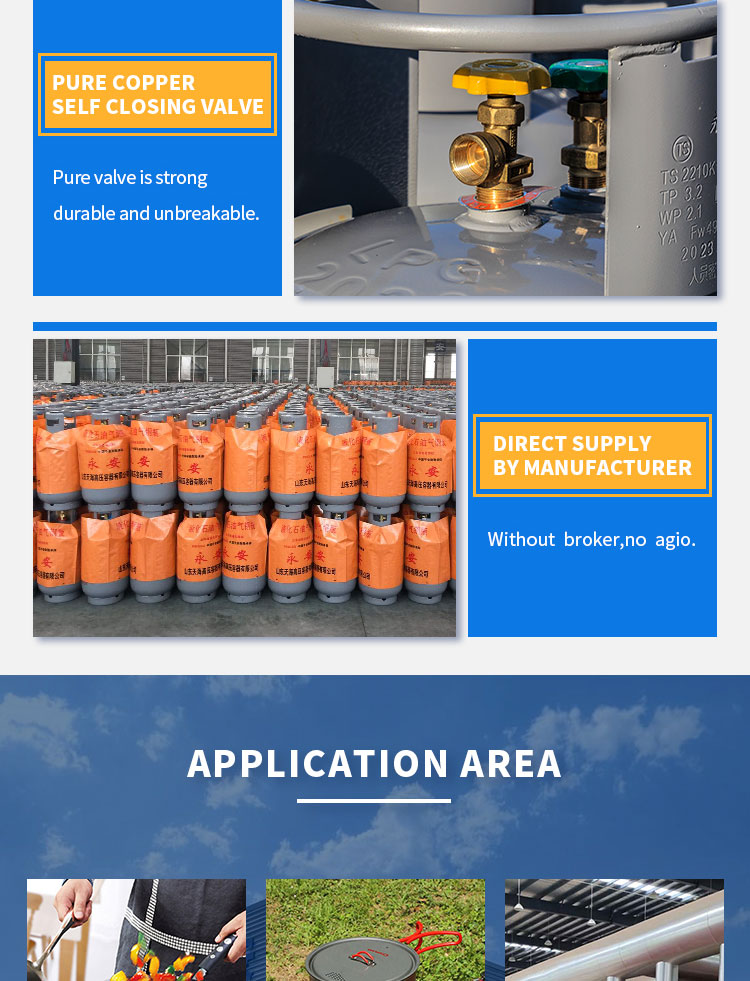
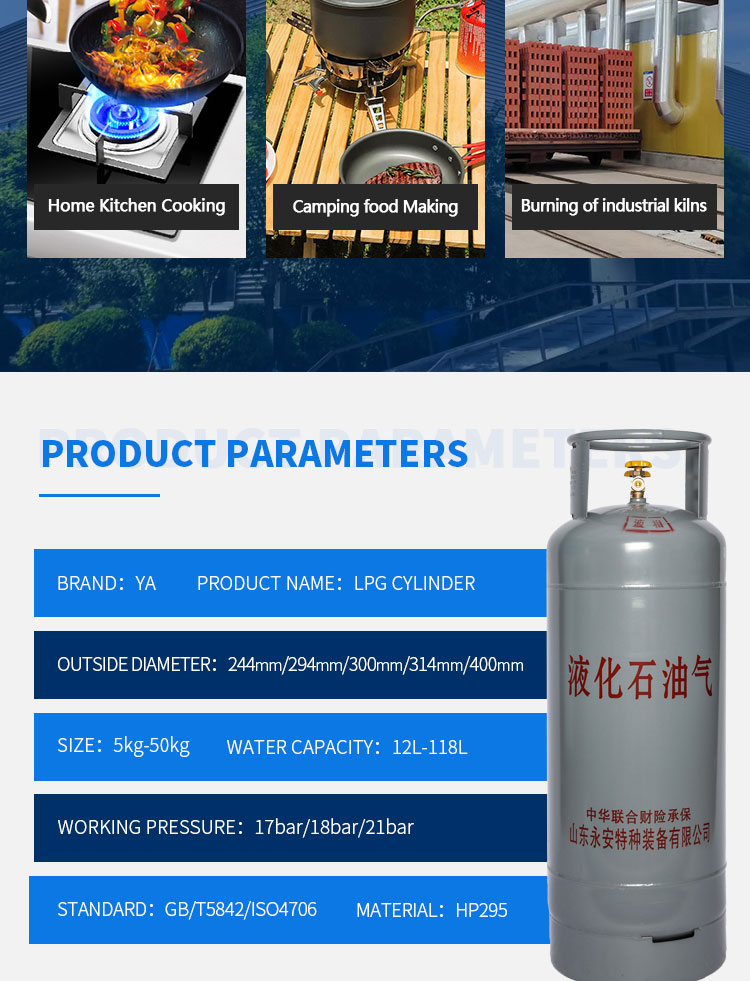
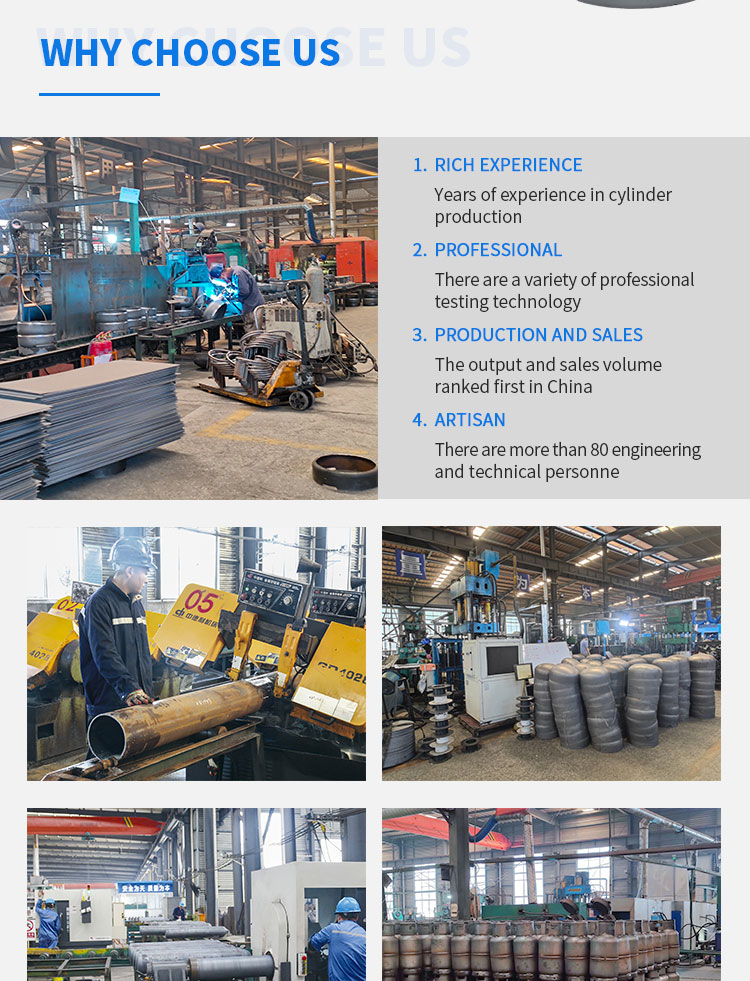
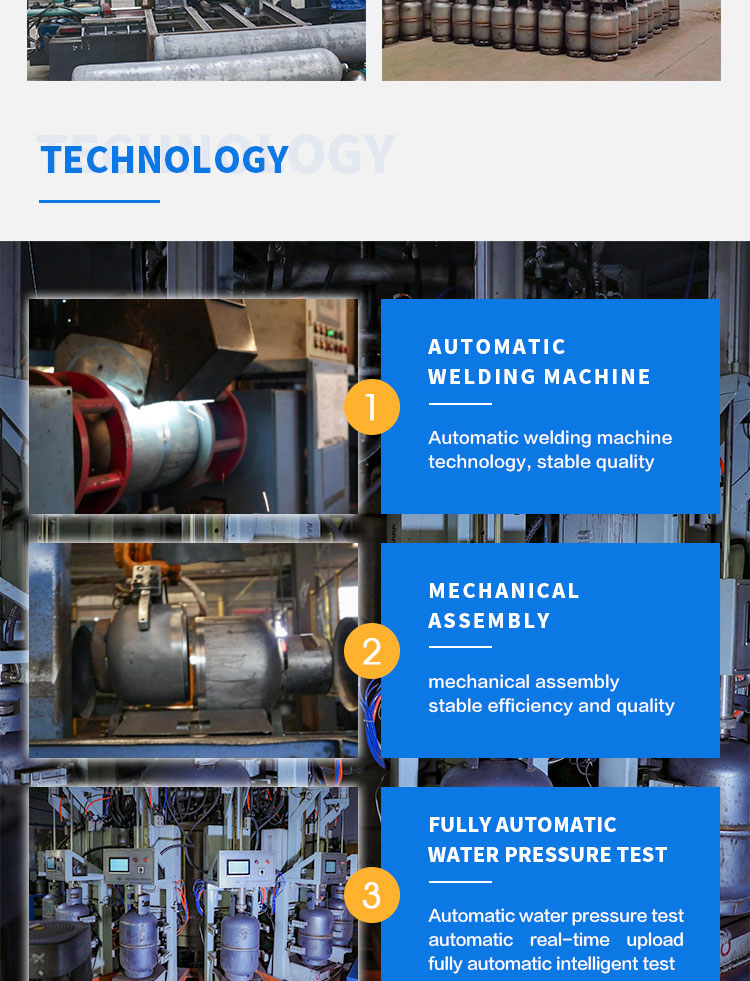
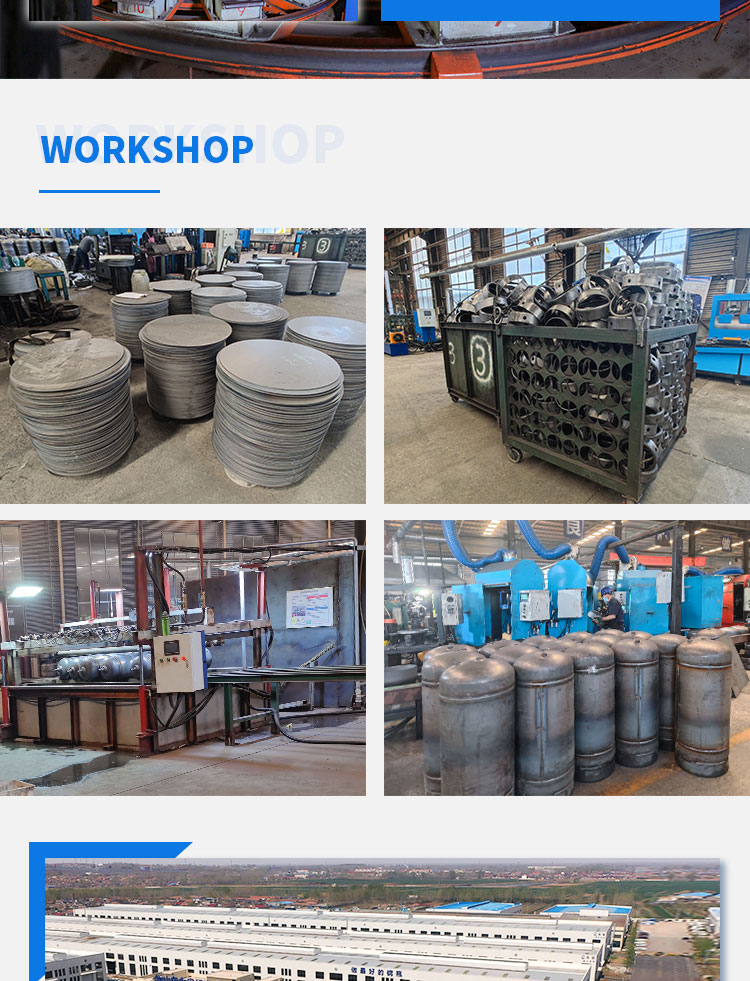
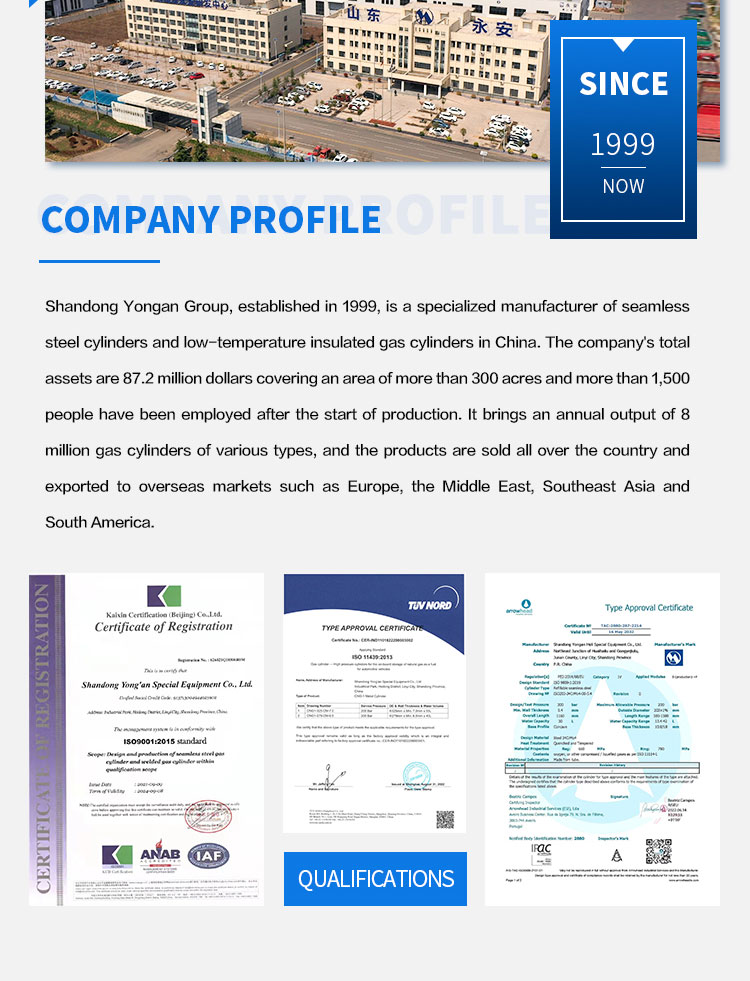
Disposal measures after bottled liquefied petroleum gas catches fire
Once the bottled liquefied gas catches fire, different disposal measures can be taken according to the situation on site.
1. When the valve of the liquefied gas cylinder is intact, the first choice is to close the valve, and the fire will be extinguished after the valve is closed. The situation that "put out the fire first and then close the valve, otherwise it will backfire and cause an explosion" circulated on the Internet will not happen when the liquefied gas cylinder catches fire. The body and mouth of the liquefied gas cylinder are relatively small, and the pressure is relatively low, so there will be no pressure difference, and the pressure inside the liquefied gas cylinder is greater than the outside world.
2. If the valve of the liquefied gas cylinder on fire is damaged, it is not necessary to extinguish the fire. First, carry the liquefied gas cylinder to an open area and stand it, then cool the bottle body with water, and wait for the liquefied gas to burn completely;
3. If the liquefied gas cylinder falls to the ground and burns horizontally, the cylinder is easily heated by the flame. After reaching a certain temperature, the liquefied gas in the cylinder expands due to heat, and the cylinder body is prone to physical explosion. When it is impossible to predict and has no ability to deal with it, call "119" as soon as possible and wait for the firefighters to arrive at the scene.
Liquefied petroleum gas is flammable and explosive, and its explosion limit is 1.5% to 9.5%. When the concentration of liquefied petroleum gas is within this range, even if there is no open flame, it will explode when encountering a certain amount of energy.
The liquefied petroleum gas cylinder is a widely used pressure vessel. According to the requirements of the "Gas Cylinder Safety Technical Regulations", the material of the cylinder is smelted non-aging killed steel (completely deoxidized steel), and the service life is 8 years. The steel cylinders that have reached the design service life shall not exceed 12 years after passing the safety assessment. The year of manufacture of the cylinder is embossed on the head. The regular inspection cycle of steel cylinders is 4 years. If you want to check whether the steel cylinders are within the validity period, just check the steel cylinder inspection mark ring.
At present, the specifications of liquefied gas cylinders widely used in the market are mainly 15kg and 45kg cylinders. The 15kg steel cylinder is mainly used by residents and small restaurants, and the 45kg steel cylinder is basically used in restaurants, canteens and places that require centralized gas supply.
When using liquefied gas cylinders in daily life, when the angle valve is opened, the liquefied petroleum gas is vaporized through the pressure reducing valve, enters the gas stove through the connecting hose, and is sprayed out from the gas stove nozzle. When vaporizing, it absorbs a lot of heat from the surrounding area. Therefore, when using liquefied gas cylinders, "water droplets" often hang on the cylinders. If the amount is too large for a while, the gasification speed is too fast, and the liquefied gas cylinders may frost.
Precautions for using bottled liquefied petroleum gas
1. Safe and qualified liquefied gas cylinders must be used. The cylinders should be within the validity period of regular inspections. Gas cylinders that do not meet safety requirements such as incomplete safety accessories, damage, severe corrosion, and deformation must not be used.
2. When using liquefied petroleum gas, someone should take care of it to prevent the soup from boiling over to extinguish the flame, causing the liquefied petroleum gas to leak out and causing fire and explosion accidents.
3. Unauthorized dismantling and repairing of cylinder valves, pressure reducing valves, digging and welding repairs is strictly prohibited. It is strictly forbidden to dispose of the residual liquid in the gas cylinder without authorization, and it is strictly forbidden to lie down, stand upside down, knock and collide with the gas cylinder.
4. After using liquefied petroleum gas, the stove switch should be turned off in time, and the valve of the liquefied petroleum gas cylinder should be closed before going to bed or going out.
5. It is strictly forbidden to heat the gas cylinder with any heat source such as boiling water or flame, and use open flames such as lighters and matches to detect leaks. It is strictly forbidden to expose the gas cylinder to sunlight. It is strictly forbidden to get close to open flames or places with high temperature, and keep a distance of more than 1m from the stove.
6. Be sure to purchase a stove with a flameout protection device and install it in a standardized manner. Once you find liquefied gas leakage (odor) from the stove, steel cylinders and connection parts, you must first do not switch any electrical appliances, and do not use open flames. When safety is ensured, close the cylinder valve, open doors and windows for ventilation, and call rescue personnel in a safe place.










